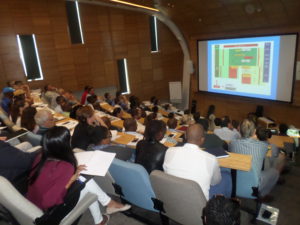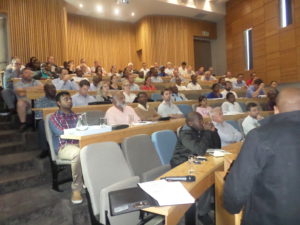SARF Eastern Cape hosted a presentation on New Environmental Regulations presented by Mr Mogole Mphahlele on 4 September 2017. The presentation highlighted the 2017 changes to the EIA regulations
The most recent changes to the environmental authorisation regime were published by the Minister of Environmental Affairs on 7 April 2017. These amendments appear to give further effect to the implementation of the ‘One Environmental System’, being the agreement between the Ministers of Mineral Resources, Environmental Affairs and Water Affairs and Sanitation on an integrated environmental management system for mining. The generally accepted position being that the One Environmental System took effect on 8 December 2014.
The High Court remarked that provisions giving effect to the One Environmental System were confusing. The 2017 amendments, through the transitional provisions, attempt to clarify the position post 8 December 2014 in respect of environmental authorisations and Environmental Management Programmes (EMPrs) for mining. The transitional provisions include that:
- If an environmental authorisation was required and obtained prior to 8 December 2014 in respect of mining activities, and a mining right granted in terms of the Mineral and Petroleum Resources Development Act 28 of 2002 (MPRDA), the requirements of the NEMA had been met.
- Post 8 December 2014, EMPrs for mining activities, which were approved under the MPRDA, are now subject to the provisions of the EIA Regulations. This includes that the first environmental audit in respect of the EMPr must be submitted to the competent authority by 7 December 2019 and at least every five years thereafter.
Some of the other changes to the EIA Regulations include:
- Protocol and minimum information requirements
- Basic Assessment process could be required (instead of an EIA)
- Closure plan may include financial provisions
- Conditions regarding commencement
- Lapse of authorisation
- It is now specified that it is not necessary to appoint an EAP for a non-substantial amendment to an environmental authorisation, (i.e. an amendment that would not require an EIA).
The event was attended by 75 attendees and everyone found it very informative.


